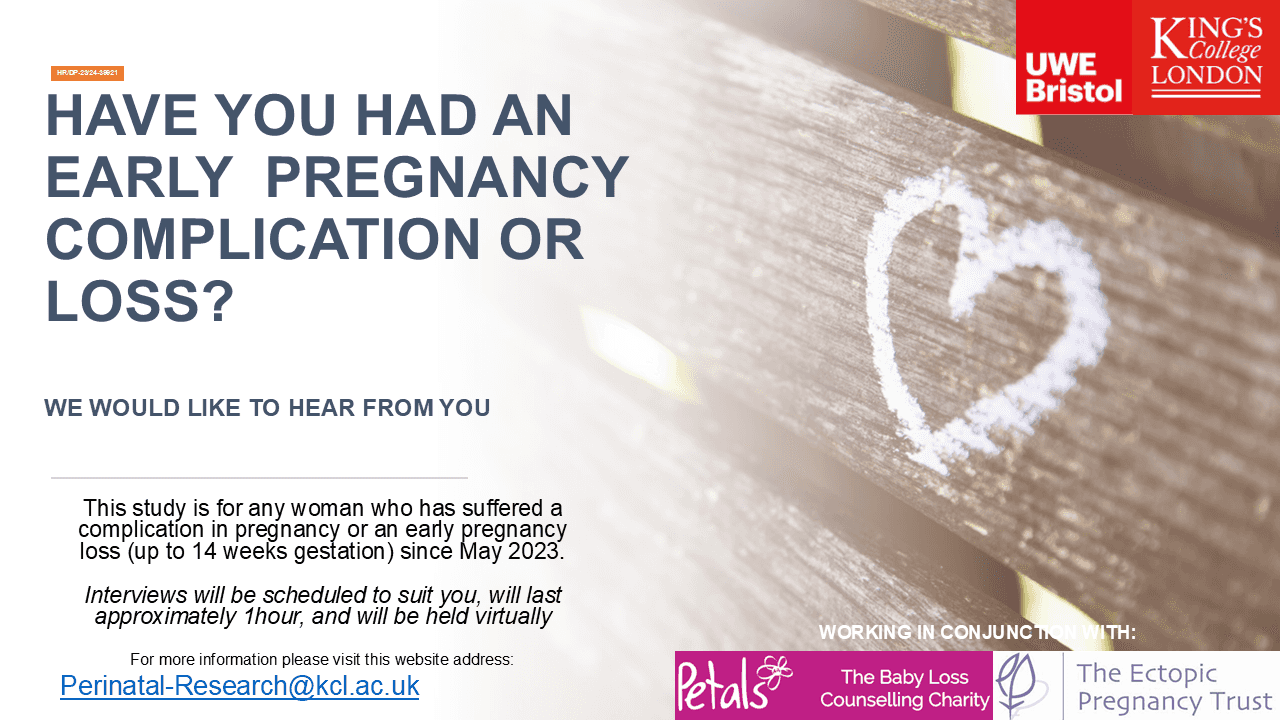Research

Ectopic pregnancy experiences questionnaire
Priority Setting Partnership for Ectopic Pregnancy
The Ectopic Pregnancy Trust, along with an international team of healthcare professionals and researchers, is supporting a Priority Setting Partnership (PSP) for ectopic pregnancy, which aims to identify and prioritise unanswered research questions about the causes, diagnosis, and benefits and safety of various treatments for ectopic pregnancy.
The partnership is bringing together people from different backgrounds and aims to ensure that those who fund and undertake future research in ectopic pregnancy answer questions which really matter to people with lived experience of ectopic pregnancy, healthcare professionals, and researchers.
AMETHYST Trial: Adding Mifepristone to mETHotrexate for ectopic pregnancY STudy
Led by the University of Aberdeen, this trial looks at a new drug to treat ectopic pregnancy. The Ectopic Pregnancy Trust joins an international team in leading the research. The team will investigate whether a drug called mifepristone is more effective at treating ectopic pregnancy than the current medical treatment. This could help hundreds of women every year avoid emergency surgery. You can read more here.
Research into biological process that may cause tubal ectopic pregnancy by University of Edinburgh
The EPT has supported research into biological processes that may be connected to ectopic pregnancy. The Trust sponsored Heather Flanagan, a PhD student at The University of Edinburgh, who is researching the causes of ectopic pregnancy.
This involves examining cellular changes in the lining the Fallopian tube with may result in ectopic embryo implantation. This work was supported by a joint Medical Research Council/Ectopic Pregnancy Trust PhD Fellowship.
The GEM3 trial
The EPT assisted with seeking lived-experience views on combining gefitinib with methotrexate to improve effectiveness of medical management. A group of researchers, led by EPT trustee Professor Andrew Horne of the University of Edinburgh, ran the GEM3 trial which sought to establish whether medical treatment of ectopic pregnancy with the drug methotrexate would be more effective when used in combination with the drug gefitinib.
Research into the effects of ectopic pregnancy by Monash University
The EPT has assisted Monash University with research in ectopic pregnancy with the “aim of standardising core outcomes in published papers.”
PUDDLES early pregnancy loss study
The Ectopic Pregnancy Trust worked in conjunction with King’s College London and Petals on a study on early pregnancy loss during the Covid-19 pandemic.

Take part in the MEadoW study
Other pages you might find helpful
Learn how we can help you or someone you know
Read about our guidelines and reports for healthcare professionals


